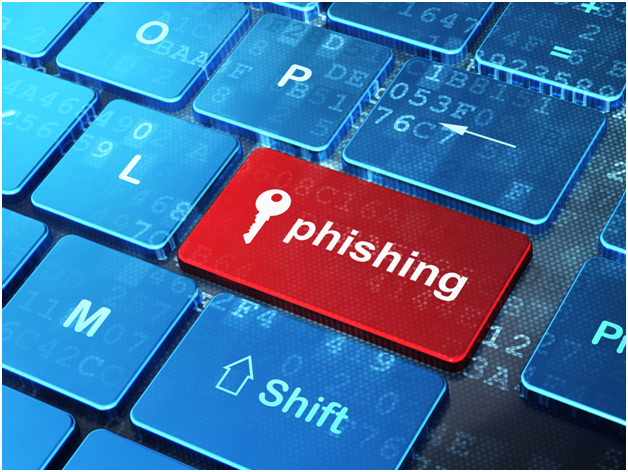Phishing—it’s a serious problem that caused more than $54 million in losses in 2020.
What are phishing scams? In simple terms, they are fraudulent attempts to obtain personal data from a person or a business, using email or websites. Similar to fishing, phishing hackers often cast a wide net, then see what they’re able to catch.
With personal data, hackers can commit credit card fraud, steal money, or steal someone’s identity. However, if you know more about email phishing scams, it’s easier to stay safe online.
To learn more, keep reading to learn more about the most common email phishing scams—plus, what you can do to prevent them.

Common Phishing Scams
One of the scariest things about phishing and email scams is that they can come in so many different forms. If you want to protect yourself from phishing scams, you need to know what they look like—here are a few of the most common.
While many of us are internet-savvy, phishing scams can be very convincing. They also often prey on those with limited technology experience, so make sure both your children and elderly parents are aware of these scams so that they stay safe online.
If you do come across a phishing scam, take action. You can report them to the authorities by contacting the Federal Trade Commission at spam@uce. gov.
Clone Phishing
Ever get an email from your bank asking for your credit card details to verify your account? The catch is, it’s not really from your bank.
Clone phishing is with a scammers clone a company’s website or create an email that looks like it came from an official source. They’re hoping victims will think it’s authentic and will enter their personal details, which the scammers can steal.
The clones created by scammers can be incredibly close to the real thing, so always stay vigilant when you’re spending time online.
Pop-Up Phishing
Pop-up phishing is when a pop-up appears on a website, asking users to enter their banking or personal details. If you don’t know for certain that a website is trustworthy, never enter any details via a pop-up.
Vishing
Vishing is when a scammer calls you, pretending to be someone like the IRS or your bank, asking for personal details. While it’s not email-based, it’s still a common type of phishing to be aware of.
Whaling
Your company will want to watch out for whaling, which is when hackers target high-value employees, like CEOs. They’re trying to get access to valuable company data that a CEO can provide, with the hope of gaining access to their email or log-in details. Learn more about what is whaling in cyber security.
How to Protect Yourself
With so many phishing scams, how can you protect yourself—and your company?
Here are a few tips to help you stay safe. However, if you’re a business, keep in mind that your company’s emails can sometimes be accidentally considered to be spammy, which will lower your open rates.
To stop this from happening, check out this article: Get Testy: What to Know About Inbox Placement Testing.
Never Get Personal Details Over Email
One of the best ways to avoid phishing is by being smart about what you share online. Generally, you never want to give personal details to someone over an email—especially to a business or person you don’t know.
You don’t always know who’s on the receiving end of an email, so never share data like your credit card numbers, banking details, or Social Security number. This includes data hackers can use to guess your passwords, like your mother’s maiden name or date of birth.
Be Suspicious of Unsolicited Requests
One of your best tools to stay safe online is your instinct. If something doesn’t seem right, trust your instinct.
If you receive an email that claims to be from your credit card company, for example, don’t automatically assume it’s genuine. You can always call the company, via their official customer help number.
Ask them if they sent the email and if it’s real. If not, they’ll be very glad that you told them about it, as they can then take legal action against the scammer trying to damage their company.
Keep Your Computer Secure
Keeping your computer safe and secure is another way to make it harder for cyberthreats to get through.
One way is by using spam filters on your email accounts, as this can block some spamming attempts from getting through. Most email providers will do this automatically, but if not, you can set one up.
There will also be options on your browser settings to turn on automatic phishing and malware detection, stopping problems before they reach you. Once you’re happily browsing and shopping online, always be cautious of what links you click on and avoid clicking on any link from a browser or email that’s not secure.
A good indication that a website isn’t secure is that it’s lacking the ‘s’ in ‘HTPPS’. The ‘s’ tells you that the website is secure, which keeps your data safer.
Stay Safe: Avoid These Common Email Phishing Scams
As you can see, there are plenty of email phishing scams trying to take advantage of internet users. Use the tips above to stay safe online.
However, what if you do accidentally click on a scam email? If you realize right away, disconnect your internet, as this can break the connection.
You’ll also want to contact your bank and make sure your details haven’t been accessed, and also change all of your computer passwords. Staying safe online should always be a priority when using the internet.
Was this article helpful? If so, please read on to find out more.